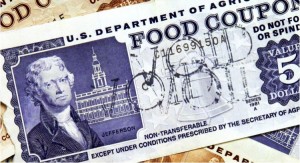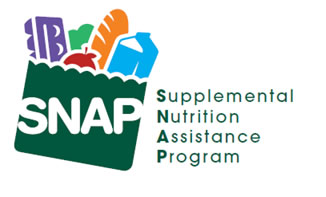WASHINGTON
Louisiana Department of Children and Family Services agrees to pay more than $3.9 million to resolve disputes pertaining to the operation of the food stamp program or SNAP, according to officials.
Until 2008, SNAP was known as the Food Stamp Program, officials stated.
 “SNAP is an important vehicle for helping families in need,” said Assistant Attorney General Jody Hunt of the Department of Justice’s Civil Division. “This settlement is an example of the department’s commitment to ensuring that taxpayer funds are spent appropriately so that the public can have confidence in the integrity of vital programs like SNAP.”
“SNAP is an important vehicle for helping families in need,” said Assistant Attorney General Jody Hunt of the Department of Justice’s Civil Division. “This settlement is an example of the department’s commitment to ensuring that taxpayer funds are spent appropriately so that the public can have confidence in the integrity of vital programs like SNAP.”
“Although it is appalling that these actions occurred within a state agency entrusted with assisting vulnerable and needy residents, I am heartened that LDCFS has resolved its liability and cooperated with our investigation,” said U.S. Attorney William D. Hyslop for the Eastern District of Washington. “Together with our partners in the Justice Department’s Civil Division and the USDA, we will continue to investigate and hold accountable those who misuse and wrongfully obtain SNAP funding.”
 “We appreciate the commitment and investigative assistance provided by our partners at the Department of Justice’s Civil Division and the U.S. Attorney’s Office throughout this multi-state investigation,” said Special Agent in Charge Bethanne M. Dinkins of the USDA, Office of Inspector General (OIG:). ” The settlements reached to date send a strong message regarding the government’s commitment to work across agency lines to protect the integrity of SNAP.”
“We appreciate the commitment and investigative assistance provided by our partners at the Department of Justice’s Civil Division and the U.S. Attorney’s Office throughout this multi-state investigation,” said Special Agent in Charge Bethanne M. Dinkins of the USDA, Office of Inspector General (OIG:). ” The settlements reached to date send a strong message regarding the government’s commitment to work across agency lines to protect the integrity of SNAP.”
Under SNAP, the USDA provides eligible low-income individuals and families with financial assistance to buy nutritious food. Since 2010, SNAP has served on average more than 45 million Americans per month and provided more than $71 billion annually.
Although the federal government funds SNAP benefits, it relies on the states to determine whether applicants are eligible for benefits, to administer those benefits, and to perform quality control to ensure that eligibility decisions are accurate.
The USDA requires that the states’ quality control processes ensure that benefits are correctly awarded, are free from bias, and accurately report states’ error rates in making eligibility decisions.
The USDA reimburses states for a portion of their administrative expenses in administering SNAP, including expenses for providing quality control. It also pays performance bonuses to states that report the lowest and the most improved error rates each year, and can impose monetary sanctions on states with high error rates that do not show improvement.
The settlement resolves allegations that beginning in 2011, DCFS contracted with a consultant known as Julie Osnes Consulting LLC (Osnes Consulting) to provide advice and recommendations designed to lower its SNAP quality control error rate.
The United States alleged that Osnes Consulting’s recommendations, as implemented by DCFS, injected bias into DCFS’s quality control process and resulted in DCFS submitting false quality control data and information to USDA, for which it received unentitled performance bonuses for fiscal years 2012 and 2013.
This is the sixth settlement in this matter, and the fifth settlement with a state agency for manipulating its SNAP quality control findings. The United States has reached previous settlements with state agencies in Virginia, Wisconsin, Texas, and Alaska, as well as with Osnes Consulting and its owner, Julie Osnes. Including this settlement, the United States has now recovered over $36 million in connection with this investigation.
The investigation arose out of a nationwide audit of SNAP Quality Control processes by the USDA-OIG. The investigation for the U.S. Attorney’s Office for the Eastern District of Washington was handled by Assistant U.S. Attorneys Dan Fruchter and Tyler H.L. Tornabene. The claims resolved by the civil settlement are allegations only and there has been no determination of liability.

